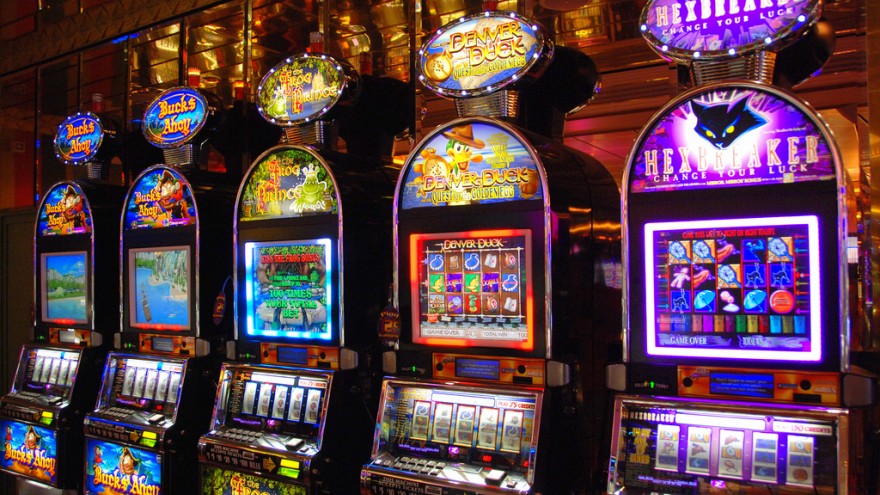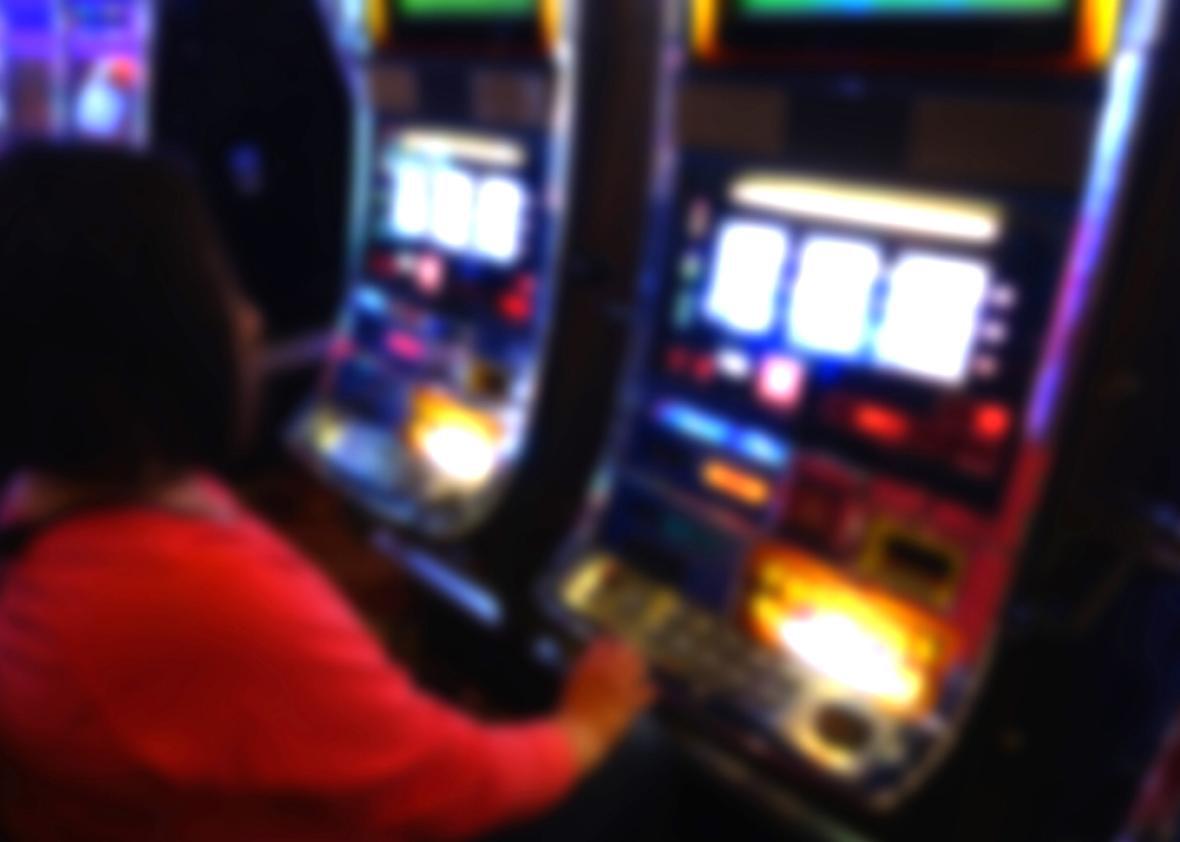Psychology Behind Slot Machines
Slots have a way of captivating our imagination, but they also manipulate our psychology.
The studies on slot play keep coming By Frank Legato. I just read an article on the “Study Breaks” website titled “The Psychology Behind Slot Games.” It is yet another article that attempts to dissect our brains to reveal why it is we love slot machines, and it’s all stuff I’ve reacted to, debunked and busted on in this space. Slot machines are based on basic psychological principles identified by B.F Skinner in the 1960's. Skinner is renowned for an experiment that he conducted wherein pigeons were placed in a box (which came to be known as the Skinner box) and given a food pellet every time they pressed a lever. Psychology of Slot Sounds If you’re still wondering why people are in awe of slots, it could be due to the sounds the machines produce. Humans are attracted to aesthetics, interesting sounds, bright flashy lights, and anything that provides entertainment. Unfortunately for some, however, despite the similarity to the concept of “flow” in positive psychology, slot machine-induced flow often leads to negative consequences—in terms of time management and monetary loss. The Seduction of Slots: Depression and Dark Flow. In this article, I’ll explain how basic psychology is responsible for the massive profitability of real money slot machines. Ease of Gambling. If you were dropped into a casino from outer space and sat in front of a slot machine, chances are it wouldn’t take long before you began to understand how slots work. When it comes to having a low.
The allure of slot machines is undeniable. They have taken over casino floors from Los Angeles to Africa. Their hypnotic power has allowed them to become the number one revenue generator for casinos worldwide. With their vibrant graphics & flashing lights slots are able to stimulate users’ senses on multiple levels. Slots create a world filled with fantasy where people can escape to.
When playing you have to ask yourself whether you are playing slots or are the slots playing you? Slots are able to stimulate addictive behavior more than any other type of gambling. A Canadian study found that 60% of the $1.8 billion played in slots in Ontario came from problem gambling. That percentage is alarming when you realize that its significantly“higher than that for horse racing (53%), casino table games (22%), bingo/raffles (22%), and lotteries/instant-win scratch tickets/sports betting (19%).”
So why are slots so effective at getting into our heads? There are many variables, but the main power of slots is rooted deeply in human psychology. Slots take advantage of basic human instincts to maximize their appeal.
Slot machines are able to seduce us on multiple levels.
Slots naturally catch our attention because they are flashy. They are packed with ringing bells, exciting music & top notch animation that pump us up. They also are rich in symbolism & packed to the brim with our wildest fantasies. Celebrities, ancient cultures, lucky numbers/animals & mythology are all heavily themed. This provokes our inner child who is desperately searching for magic, rewards & riches. The captivating visuals combined with epic audio makes a powerful mix that reaches deep into our subconscious levels. This trains us to associate the entire experience with luck, positivity & rewards.
Unlike traditional games, slots require no skill. It could take years to perfect playing poker of blackjack, but slots rev up with just the push of a button. There is no decision making or skill required, you are banking on blind faith.
Slot gameplay is extremely fast, & keeps our minds constantly stimulated. A game of poker could take hours, a roulette wheel spin can take 2 minutes & a slot machine can be spun 10 times per minute! They are also non-threatening & judgment free. When you play slots it’s extremely personal, it’s just you & the machine.
The hypnotic power of slot machines is undeniable.
Slot machines produce recurrent neurological responses with the human brain. They are able to seduce players by stimulating dopamine production. Dopamine is the chemical responsible for rewarding you when you do things that promote survival, like sex & food cravings. It’s also stimulated when you take risks, it’s your neural pathways’ way of balancing risk, pleasure & rewards.
Psychology Behind Slot Machines Games
The potent mix of small rewards scattered in with occasional large ones keep us fascinated with slots & wanting more. Slots constantly reward us with bonus plays, free games, scatters, wins & near misses. This allows our brains to mask the fact that we are steadily losing. If you win back a few nickels on a 25 nickel bet, you can justify the fact that you are winning when in reality it’s the opposite. The near miss psychology makes players feel that instead of losing, they almost won. The subliminal affect of small benefits create a powerful concoction of positive reinforcement even in the face of failure.
While the effects of slots on the human brain are fascinating, they can be detrimental to your finances. For this reason it’s essential to educate yourself about your own phycology. Not everyone who plays slots becomes an addict, but knowing how the game can play you is the first step of prevention. Once you have been enlightened about the tantalizing risks of slots, it makes it easier to identify the warning signs. Don’t become a victim of your own mind.

I spent part of last week on vacation from science in Las Vegas, where I thankfully avoided financial ruin due to some fortunate combination of genes, math awareness and a wife that has no interest in gambling. Sure, I dabbled a bit in games of chance, but as soon as I got a little bit ahead on the blackjack tables I ran for my life, knowing that the probability would even out hard in the long run. For those concerned about the financial well-being of Sin City, they still managed to turn a profit on us, thanks to the low-return temptations of fine dining and French circus acts set to Beatles megamixes. But most of our time was spent on the free entertainment of people-watching and stuff-watching, observing row after row of people almost hypnotically at work on loud, noisy slot machines amid fake New York, Paris and Venice scenery.
It doesn’t take a PhD in neurobiology to conclude that slot machines are designed to lure people into a money-draining repetition, just as it doesn’t take expertise in the casino business to realize slots are absurdly profitable – there’s a reason why they outnumber table games 100-to-1. But I wanted to go back to the scientific literature to confirm a faint glimmer of information I retained from graduate school, specifically that slot machines are masterful manipulators of our brain’s natural reward system. Every feature – the incessant noise, the flashing lights, the position of the rolls and the sound of the coins hitting the dish – is designed to hijack the parts of our brain designed for the pursuit of food and sex and turn it into a river of quarters. Or so I remember.

Fortunately, there is a robust amount of research into why slot machines are so addictive, despite paying out only about 75% of what people put in. They are, some scientists have concluded, the most addictive of all the ways humans have designed to gamble, because pathological gambling appears faster in slots players and more money is spent on the machines than other forms of gambling. In Spain, where gambling is legal and slot machines can be found in most bars, more than 20.3 billion dollars was spent on slots in 2008 – 44% of the total money spent by Spaniards on gambling last year.
That data was published earlier this month by a psychologist from the Universidad de Valencia named Mariano Choliz in the Journal of Gambling Studies. Yes, such a publication exists! In the background of the paper, Choliz outlines the tricks that slot machines use to keep people feeding them:
- Operating on a random payout schedule, but appearing to be a variable payout; i.e. fooling the player into thinking that the more money they play, the more likely they are to win.
- “The illusion of control” in pressing buttons or pulling a lever to produce the outcome.
- The “near-miss” factor (more on this below)
- Increased arousal (where the sounds and flashing lights come in)
- Able to be played with very little money; the allure of “penny” slots.
- And perhaps most importantly, immediate gratification.

This last point is the subject of Choliz’s experiment, which puts a group of ten pathological gamblers in front of two different slot machines. One machine produces a result (win or lose) 2 seconds after the coin was virtually dropped (it was computer program), the other delayed the result until 10 seconds after the gambler hit play. In support of the immediate gratification theory, gamblers played almost twice as long on the 2-second machines than they did on the 10-second machines…even though the 10-second machines paid out more money on average!
Choliz concluded that the immediacy of the reward was part of what kept people at slot machines, making them so addictive. The quick turnaround between action and reward also allows people to get into a repetitious, uninterrupted behavior, which Choliz compares to the “Skinner boxes” of operant conditioning – the specialized cages where rats hit a lever for food or some other reward. It seems like a cruel comparison, but after my three days walking through the casinos, not an inaccurate one.
Another trick up the slot machine’s sleeve was profiled earlier this year by a group of scientists from the University of Cambridge. In the journal Neuron, Luke Clark and colleagues examined the “near-miss” effect, the observation that barely missing a big payout (i.e. two cherries on the payline while the third cherry is just off) is a powerful stimulator of gambling behavior.
The Cambridge researchers put their subjects in an fMRI machine to take images of their brains while they played a two-roll slot machine game. When the players hit a match and won money, the reward systems of the brain predictably got excited – the activation of areas classically associated to respond to food or sex I mentioned earlier. When players got a “near-miss,” they reported it as a negative experience, but also reported an increased desire to play! That feeling matched up with activation of two brain areas commonly associated with drug addiction: the ventral striatum and the insula (smokers who suffer insular damage suddenly lose the desire to smoke).
The Psychology Behind Slot Machines
Clark and co. conclude that near-misses produce an “illusion of control” in gamblers, exploiting the credo of “practice makes perfect.” If you were learning a normal task such as hitting a baseball, a “near-miss” foul ball would suggest that you’re getting closer – it’s better than a complete whiff, after all. But for a slot machine, where pulling the lever has no impact on the rolls other than to start them moving and start the internal computer calculating, a “near-miss” is as meaningless as any miss.
Psychology Behind Slot Machines Invented
Nevertheless, it’s this type of “cognitive distortion,” as Clark and colleagues name it, that makes slot machines such effective manipulators of our brains. Those massive, gaudy casino-hotels that I wore out a pair of shoes strolling through last week weren’t just built on a crafty use of probability, they were built on a exploitation of brain functions we are only just beginning to understand.